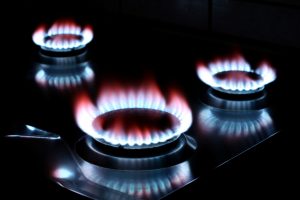 We’re starting to enjoy some warmer weather here. But as we pointed out in our last post, no matter what the groundhog says about seeing his shadow, you must always be ready for harsh winter colds to blow in at any time before the spring truly beings. March can be notorious with its shifts in temperature. It’s not time to turn off your gas furnace and prepare it for summer hibernation quite yet.
We’re starting to enjoy some warmer weather here. But as we pointed out in our last post, no matter what the groundhog says about seeing his shadow, you must always be ready for harsh winter colds to blow in at any time before the spring truly beings. March can be notorious with its shifts in temperature. It’s not time to turn off your gas furnace and prepare it for summer hibernation quite yet.
In fact, this is a part of the year when you need to pay special attention to issues that might crop up in your gas furnace after so much hard work through the winter. We’re going to look into a specific issue that many people are surprised to learn can happen in a gas furnace: leaking water.
But a furnace isn’t a boiler—why would it leak?
We know that a furnace leaking water sounds odd initially. Boilers operate using heated water to deliver warmth throughout the rooms, so people expect that water leaks may occur at some point. But furnaces run off natural gas burners that create combustion gas to heat the air; water isn’t involved in the heating. So why would you start to see water coming from the bottom of your gas furnace unit?
It might not actually be the furnace at fault
The first thing to consider is that it isn’t the furnace that is malfunctioning. If you’ve already started to run your air conditioning system during the warm weather, the AC’s condensate pan or drain might be leaking. Because the indoor AC unit is often installed above the furnace in the HVAC cabinet, the water will drip down onto the furnace and then the floor. This is still a big problem, not only for the air conditioner but for the furnace, since water promotes corrosion on the furnace—and a corroded furnace usually needs must be replaced!
High-efficiency furnaces
Furnace efficiency ratings are improving thanks to new technology. But high-efficiency condensing furnaces are at a higher risk of water leaks. The reason for this is that condensing furnaces contain a second heat exchanger where extra thermal energy is drawn out of the combustion gas. The exhaust vapor from the first heat exchanger moves to the second exchanger, where the vapor is condensed. This creates water that is then drained out of the furnace through a tube leading to a drain. This tube can spring leaks, or the drain become blocked, and this will lead to water leaking.
Standard furnaces
For non-condensing furnaces, water leaking is often because of an exhaust flue that is becoming blocked—or may have been incorrectly sized in the first place. The exhaust vapor trying to exit the flue will condense inside the flue and the water will drip back down, ending up on the floor. This needs to be repaired quickly, since blocked flues can allow exhaust vapor to enter your home.
Let Our Experts Take Care of Your Heating Needs
Keep in mind that any type of gas furnace problem must be left to certified professionals. Amateur tampering with a gas-lit furnace is a potential safety hazard. Our HVAC team will take care of your furnace repair in Fort Wayne, IN so that the heater works once more and without any safety concerns.
Collier’s Heating & Air Conditioning: A company you’ve grown to trust!
